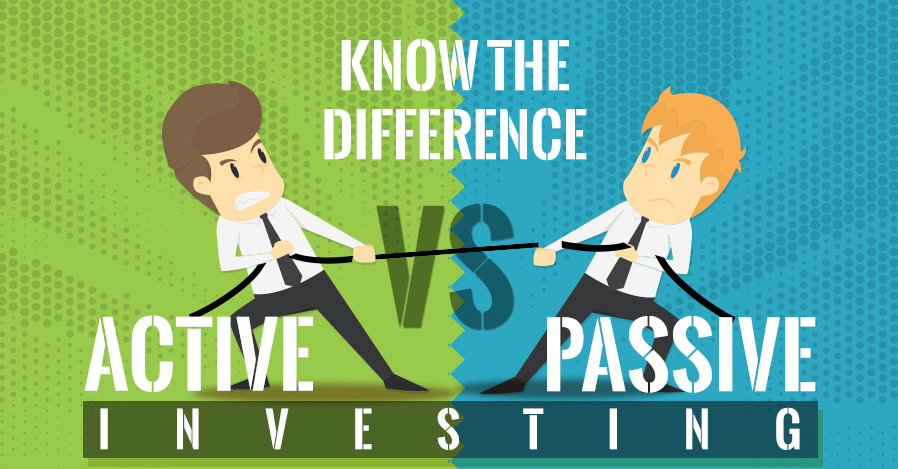What kind of investor do you want to be? Hands on? Hands off?
Now that you know the benefits of investing in real estate, you need to decide how hands-on you want to be.
- Hands-on investors are called Active Investors. If this is your speed, you’ll want to explore rental properties or flipping properties.
- Hands-off investors are called Passive Investors. If this speaks to you, you should consider becoming a private lender or investing in a real estate syndication.
Let’s Take a Deeper Look
Wether you want to be a active or passive investor it all starts with do you want to be hands on or hands free in an investment. This should be done before you invest a single dollar.
An active investor is someone who has an active role in the investment. For example this individual or group is active in finding, evaluating, funding, acquisition, management, and disposition of the asset. and a passive investor is someone who takes a passive role, letting others do the active management on their behalf thus being a hands free investor sitting back and watching everyone else do the hard work.
Active Investing:
When people think of real estate investing, traditionally they are thinking of buying a rental property.
Having $100,000 to invest, they can buy a rental property up to $400,000. You use that $100,000 towards the down payment with a $300,000 loan. You then do all the work! You will have to deal with tenants, turnovers, and trash or put a manager in place who helps you find tenants, collects rent each month, and deal with turnovers.
If something breaks, like the furnace, you’re responsible for the repair $$$! When the tenant moves out, you’re responsible for finding a replacement.
The upside is you get to keep all the profits, decide whether to make upgrades or how long to hold the asset, and when to sell. You are in control.
Passive Investing:
For those who want to invest in real estate but don’t want to deal with the hassle of being a landlord and dealing with things like tenants, termites, turnovers, and trash they can be passive real estate investors.
Here, rather than buying the entire property and dealing with all of that, you put $100,000 into an investment with an active investor. With multiple other investors, just like yourself, that put in between $50,000 to $100,000, or even more into an investment called a syndication for bigger multifamily property.
Together, instead of you acquiring a single-family rental property, as a group of investors we can buy an apartment building.
As a passive investor, you put in your money, and that’s the end of your active role in the investment. You are now hands free, and don’t have any other responsibilities. You get to focus on your best life, your career, your children, your grandchildren, traveling, adventure, or whatever you please and makes you happy.
The general partners (aka the sponsor team) handles the acquisition of the asset, the day-to-day management of the asset, the paperwork, and any maintenance issues. They also decide when to sell and are responsible for carrying out the process.
For the duration of the investment, you will get monthly or quarterly cashflow distribution checks. At the end of the whole thing, you get your $50,000 to $100,000 back or whatever your original principal capital was, plus a share of the profits from the sale.
All without having to do any work…… Hands Free Passively!
That leads to the main difference. Active investors have all the control, but all the responsibility & liability. Passive investors give up control in return for not having to do any of the work but still rep the rewards.
Q: Which option is best for you: Active Investor or Passive Investor?
A: There is no right or wrong answer. It all comes down to what do you want? Depending on where you are in life, do you have the time, do you have the knowledge, do you have the team? Would you rather be enjoying time with your family and friends, enjoying your best life, focusing on your current career? Or would you rather start investing into rental property and doing all the work yourself?
Five Factors That Contribute To Going Active or Passive
- Are you busy with your full time job or other commitments but you’d still like to receive the benefits of investing in real estate?
- Are you interested in investing in real estate, but lack the capital or experience to confidently invest on your own?
- Are you comfortable with others making business decisions for your investments?
- Are you someone that would rather enjoy your time with family and friends rather than having your plate full with yet another thing?
- Are you someone that is looking for a new, secondary, or supplemental income stream without dealing with the 5 T’s ( Tenants, Termites, Toilets, Turnovers, Trash)?
Depending on your answers, it should be pretty clear now what direction you will go now. Oftentimes for those interested in investing actively, starting out as a passive investor can help you build up the skills and understanding of acquisitions, management and disposition process of a property. However if you answered no to #3, you may have a hard time investing passively. General partners typically have 100% control over the business plan, meaning as a passive investor you’re giving up direct control.
